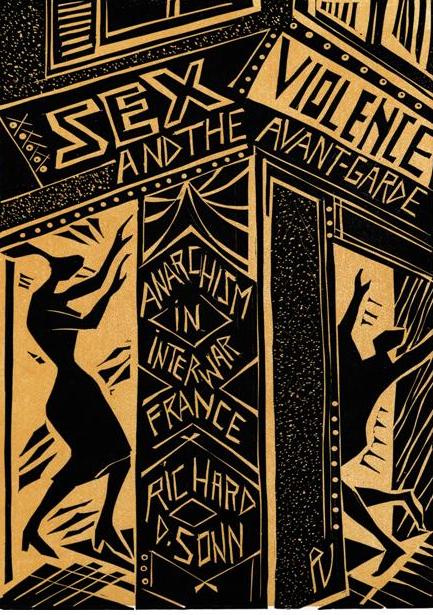In his newest book, Sex, Violence, and the Avant-garde: Anarchism in Interwar France (Pennsylvania State University Press), professor Richard Sonn of the department of history argues that by the end of World War I, the conflict between anarchism and the state had largely been eclipsed by the competing forces of liberalism, fascism and communism.
To combat their slide into irrelevance, French anarchists, especially those called individualists, redirected their attentions from violent revolution and general strikes to ethical issues that focused on personal liberation. Chief among these issues was sexual freedom, meant not only for the sake of pleasure but to undermine the authoritarian family, bulwark of the patriarchal state.
In this revelatory book, Sonn approaches the French anarchist movement during this period from a socio-cultural perspective, considering the relationship between anarchism and the artistic avant-garde and surrealism, political violence and terrorism, sexuality and sexual politics, and gender roles. He shows that, contrary to popular belief, anarchism in theory and practice played a significant role in the culture of interwar France.
Critical praise is already strong for Sonn's book. Rachel G. Fuchs, (Arizona State University) lauds the book as “a fascinating work that will make an important contribution to studies of anarchism, politics, violence, immigration, and sexuality” and enthuses, “Sonn provides a refreshing new look at the relationship between gender and violence.”
Martin Jay (University of California, Berkeley) commends Sonn's depth of research, “Drawing on a wealth of new sources and a lifetime immersion in the history of European anarchism, Richard Sonn has fashioned a fresh and arresting account of the libertarian and libertine left in France between the wars. Unflinchingly acknowledging their more dubious passions, such as eugenics, he nonetheless provides us a sympathetic portrait of men and women dreaming of a better world, free of economic injustice, state tyranny and the repression of the body. Rather than a period of decline for anarchism, the interwar years in France, he shows us, were an era of renewal based on ethical principles and the repudiation of violence, whose echoes reverberated in the l960's and beyond.”
Contacts
Tricia, Starks
History
575-7592,
